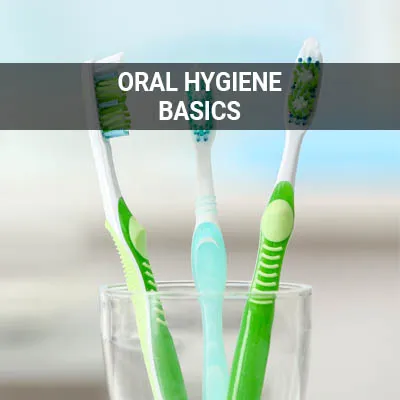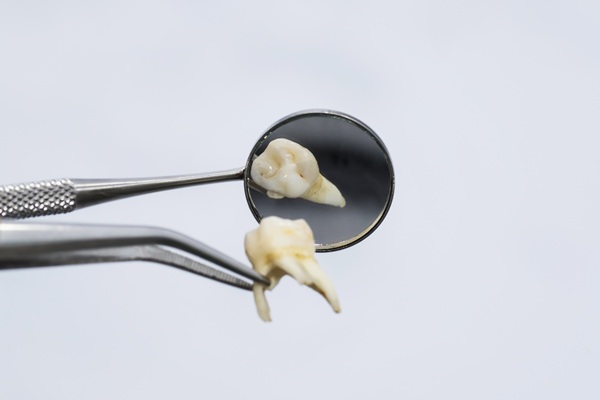How Proper Oral Hygiene May Improve Overall Health Boca Raton, FL
As oral health has a profound impact on our physical health, proper oral hygiene may improve overall health. Heart disease, diabetes, pregnancy, and other conditions are often influenced by the health of a person's teeth and gums. The oral health connection to overall health and well-being is another reason why it is important to seek dental care.
Looking at dental care as a crucial component of overall health can promote healthier habits as well. A dentist is available at Karoline Asbell, DDS in Boca Raton and the surrounding area. If you have oral health issues and wonder how your dental health impacts your overall health status, call us at (561) 225-2063 to schedule an appointment today.
The Oral Health Connection
According to WebMD, the mouth acts as an entryway to the digestive and respiratory tracts. It is a natural breeding ground for bacteria. Most of these are harmless and can be kept under control with proper oral health care and the body's natural defenses. However, without appropriate maintenance, disease-causing bacteria may accumulate over time.
Dental Health and Heart Health
It has been a long-established fact that there is a relationship between gum disease and heart disease. However, experts have yet to determine whether or not this is a causal relationship. In any case, existing research suggests that clogged arteries, heart disease, and stroke are associated with the inflammation and infections usually accompanied by dental bacteria.
Dental Health and Diabetes
Dental health and diabetes have a bidirectional relationship, meaning they both affect each other directly. Diabetes reduces the body's ability to resist infection, making patients more at risk of developing gum disease. At the same time, those with gum disease tend to have more difficulty controlling their blood sugar levels.
“According to WebMD, the mouth acts as an entryway to the digestive and respiratory tracts. It is a natural breeding ground for bacteria.”
Dental Care for Diabetics and Pregnant Women
Diabetes
People who have diabetes must be especially careful to practice good dental hygiene. Since the disease limits the body's ability to fight infection, cavities and gum disease can develop and worsen quickly in the presence of diabetes. At the same time, people who have gum disease are more likely to have unstable diabetes. Individuals diagnosed with type 1 or type 2 diabetes should work with a dentist to ward off cavities and periodontitis.
Pregnancy
Researchers have identified an association between gum disease and poor pregnancy outcomes. Pregnant women who have periodontal disease are more likely to experience premature delivery and to have an infant with a lower-than-average birth weight. The Centers for Disease Control and Prevention estimates that up to 75% of pregnant women have gingivitis, which occurs in the earliest stages of gum disease. Practicing good dental hygiene can reduce these risks significantly.
“Since the disease limits the body’s ability to fight infection, cavities and gum disease can develop and worsen quickly in the presence of diabetes.”
Lifestyle Choices and Oral Hygiene
Patients' dietary habits and lifestyle choices can also affect their dental health. Accordingly, neglecting to maintain one's oral hygiene will negatively affect one's overall health (and vice versa). As an example, one of the worst contributors to tooth decay and gum problems is excess sugar consumption. Particularly in its processed form, excess sugar consumption facilitates bacteria growth in the mouth.
Smoking is also a top contributing factor. Inhaled cigarette smoke is toxic, interferes with blood flow, and can potentially lead to oral cancer. Additionally, excess drinking will cause patients to have habitually dehydrated mouths, creating a breeding ground for bacteria. There also tends to be a correlation between those with alcoholism and poor oral hygiene habits.
Furthermore, changes in body weight may negatively affect denture fit. Loose fitting dentures may cause gums to suffer.
Some medications can also contribute to one's oral health, especially if they dry up saliva — as previously mentioned, dehydrated mouths are more prone to gum disease and tooth decay.
“Accordingly, neglecting to maintain one’s oral hygiene will inevitably negatively affect one’s overall health (and vice versa).”
Check out what others are saying about our dental services on Yelp: How Proper Oral Hygiene May Improve Overall Health in Boca Raton, FL
Dental Health and Other Conditions
Aside from heart disease, diabetes, pregnancy, and osteoporosis, there are many other conditions linked to dental health. These include but are not limited to pneumonia, rheumatoid arthritis, and Sjorgen's syndrome. Patients need to be as open and honest as possible with their complete health dentistry doctor, as certain conditions or even recent bouts of illness may affect the type of dental care they need.
In at least one study, poor oral hygiene was one of the leading risk factors for pneumonia in nursing home residents. Furthermore, rheumatoid arthritis and periodontal disease are both linked to severe inflammation. This may make patients more susceptible to Sjorgen's syndrome, which causes dryness of the mouth that causes difficulty eating and raises a patient's risk for tooth decay.
“Aside from heart disease, diabetes, pregnancy, and osteoporosis, there are many other conditions linked to dental health.”
Questions Answered on This Page
Q. How does dental health affect the rest of the body?
Q. How do lifestyle choices affect oral hygiene?
Q. How does dental hygiene affect patients with diabetes?
Q. How do I reduce or eliminate the risk of other diseases or infections?
People Also Ask
Q. Why is preventative care important? How can it save you money?
Q. What are some dental health conditions that can form during pregnancy?
Q. What family members may need extra help with their oral hygiene?
Habits and Techniques To Improve Oral Health
Individuals who have or are concerned about chronic conditions should take these preventive steps:
- Avoid smoking and other forms of tobacco
- Brush teeth with fluoride toothpaste and a soft-bristled brush after every meal
- Buy a new toothbrush every three months
- Eat a well-balanced diet with limited sugar
- Floss teeth every day
- Schedule bi-yearly cleanings and checkups with a dentist
“Schedule bi-yearly cleanings and checkups with a dentist.”
Frequently Asked Questions
Q. What are the signs of oral health problems?
A. People should see a dentist if they experience pain, swelling, bleeding, or sensitivity in the mouth or gums. Chronic bad breath can also signify tooth decay. In severe cases, the person may have loose or missing teeth.
Q. Who is at risk of diseases that result from the oral health connection?
A. People who smoke seem to be at the highest risk for oral health issues and other health problems. Those who have one or more chronic conditions are more likely to develop tooth decay and gum disease than healthy individuals. Adults ages 55 and older also have an increased risk for dental health issues and systemic concerns.
Q. What conditions have been linked to poor oral health?
A. Many people are surprised to learn how many conditions are linked to poor oral health. Diabetes, pulmonary, and cardiac disease are all linked to oral health conditions. Periodontal disease is also a complication of osteoporosis. There are even studies that show a link between oral health and Alzheimer's and dementia.
Q. How should I prepare for a visit with a dentist?
A. Patients should prepare for their first appointment by attaining their medical records or providing access to them. Write down any questions about oral health and how it may affect overall health. The dentist will ask for the patient's symptoms, medical history, medication use, habits, nutrition profile, and other information that can influence dental and systemic health, so have these details ready.
Q. Why is dental care important to overall health?
A. Many oral health conditions and systemic diseases do not produce symptoms until advanced stages. Screening by a professional can help treat any existing conditions or prevent future problems from happening. Having regular dental visits also gives the patient access to treatment that can keep health problems from worsening.
Dental Terminology
Call Us Today
Our team at Karoline Asbell, DDS may be able to help. Call us today at 561-225-2063 to schedule an appointment or to learn more about our services.
Helpful Related Links
- American Dental Association (ADA). Glossary of Dental Clinical Terms. 2025
About our business, license, and website security
- Karoline Asbell, DDS was established in 2012.
- We accept the following payment methods: American Express, Cash, Check, Discover, MasterCard, and Visa
- We serve patients from the following counties: Palm Beach County and Broward County
- We serve patients from the following cities: Boca Raton, Delray Beach, Boynton Beach, Deerfield Beach, Pompano Beach, Parkland, Lake Worth, Coral Springs, West Palm Beach, and North Palm Beach
- FL (License #DN18487). View License Information and Specifics
- National Provider Identifier Database (1295972289). View NPI Registry Information
- Healthgrades. View Background Information and Reviews
- Norton Safe Web. View Details
- Trend Micro Site Safety Center. View Details
Back to top of How Proper Oral Hygiene May Improve Overall Health
QR code for How Proper Oral Hygiene May Improve Overall Health










